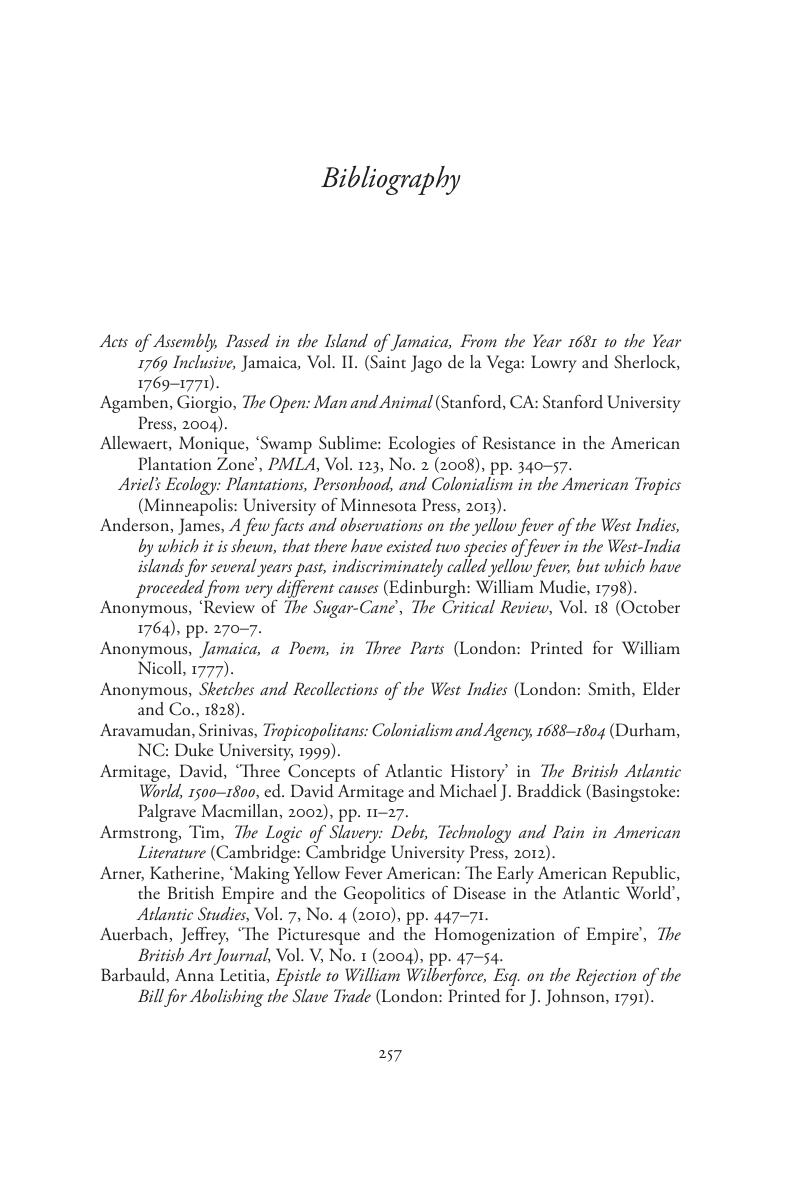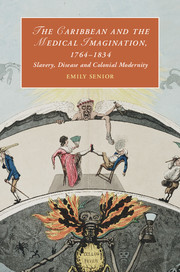Book contents
- The Caribbean and the Medical Imagination, 1764–1834
- Cambridge Studies in Romanticism
- The Caribbean and the Medical Imagination, 1764–1834
- Copyright page
- Dedication
- Epigraph
- Contents
- Illustrations
- Acknowledgements
- Communicating Disease
- Part I Health, Geography and Aesthetics
- Part II Colonial Bodies
- Part III Revolution and Abolition
- Afterword
- Notes
- Bibliography
- Index
- Cambridge Studies in Romanticism
- References
Bibliography
Published online by Cambridge University Press: 20 April 2018
- The Caribbean and the Medical Imagination, 1764–1834
- Cambridge Studies in Romanticism
- The Caribbean and the Medical Imagination, 1764–1834
- Copyright page
- Dedication
- Epigraph
- Contents
- Illustrations
- Acknowledgements
- Communicating Disease
- Part I Health, Geography and Aesthetics
- Part II Colonial Bodies
- Part III Revolution and Abolition
- Afterword
- Notes
- Bibliography
- Index
- Cambridge Studies in Romanticism
- References
Summary

- Type
- Chapter
- Information
- The Caribbean and the Medical Imagination, 1764–1834Slavery, Disease and Colonial Modernity, pp. 257 - 276Publisher: Cambridge University PressPrint publication year: 2018



